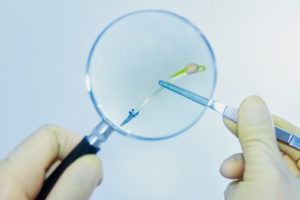Do you recognise this situation? You go on the Internet, to ‘just look up this small bit of information’ that you need to know right now. One hour later, you’re still on the Internet, reading on a completely different topic than the one you were initially searching for. Aye, the Internet is full of rabbit holes but so interesting to explore.

And do you like to do some experimenting? Like trying out new recipes from exotic countries, or cooking some ‘forgotten’ vegetables. Or like trying out different commuting routes to see which one has the least traffic jam?
Daily life becomes immediately a bit more interesting. Although, some people would say you’re wasting your precious time. Are they right?
Why does it seem like a waste of time?
Why is it that so many people think of exploring and experimenting as a waste of your time?

Is satisfying your curiosity that bad? Here are the main reasons:
- It does take some time, and you have probably 101 other things to do. Tasks that are immediately useful and need to be done anyway. So, it takes away time from other (more important) tasks.
- It is never a priority 1 task unless you’re trying to find a solution for a critical problem and there is no default solution already available.
- You may not be successful immediately. We learnt at school that if you do something, that it has to be ‘perfect’ from the first time. The results of exploring and experiments get better incrementally.
- The results are not guaranteed, and the results are not predictable either.
Learning is not a tangible result; it remains invisible. That’s the reason why schools and universities give out diplomas and certifications. It makes your knowledge visible. - You might ‘fail’. Failing is actually getting another result than the result you wanted. Like Christopher Columbus failed to find a shorter way to Asia. But instead, he discovered America.
The advantages of exploring and experimenting
You’re not the only one who likes to experiment and explore. Some explorations and experiments are very goal-oriented. Like researchers in pharmacology who are trying to find a new medicine for a disease. Or Christopher Columbus, whose goal it was to find a shorter route from Europe to Asia.

Exploring and experimenting have considerable benefits, especially when done as research to find a solution to a specific problem. But also when it’s just to satisfy your curiosity, it’s not a waste of time.
So, what are the benefits then?
- You satisfy your curiosity, and it keeps you from being bored. These are big ones for most multi-potentialites.
- You always learn something new. Perhaps, it’s not something that you can apply immediately, but it may be useful in the future.
- It stimulates your creativity, and it can give you inspiration for new projects, new knowledge you can apply or give you a solution to a problem.
- Sometimes you find another result than you expected with a much bigger impact, like Columbus who discovered America.
- By experimenting, you learn what result you get from your action. So, you also learn about the process you used, and next time, you will be able to improve the way you work.
- You might ‘fail’, but you still learn what doesn’t work, so you can eliminate that possibility or do things differently the next time. You’re building up ‘Experience’.
- You learn about yourself, what interests you and what you love doing and also what you dislike.
- By experimenting and doing different things, you also learn what you’re good at, what your strengths are and what not.
Action gives clarity
Looking at all the benefits above, exploring and experimenting are basic activities, needed to evolve as a person and as a community.

By learning about yourself, what you love doing and what not, what you’re good at and what not, you will get a clearer view on what your life is about and eventually find your purpose in life.
By learning what works and what doesn’t, what the result is of a given action, you will be able to improve and optimise your day-to-day processes.
By satisfying your curiosity, exploring and experimenting can inspire you and give you creative ideas for new projects, new career paths or new hobbies. All of them managed in your personal Passions portfolio.
Finding your purpose(s), improving your day-to-day way of working, so you have more time for your portfolio of true passions, all that is what Passions Pilot is about.
Could you do all this without trying out new things and new ways of doing something? I don’t think so.
Exciting times ahead! Can’t wait…
Your view?
